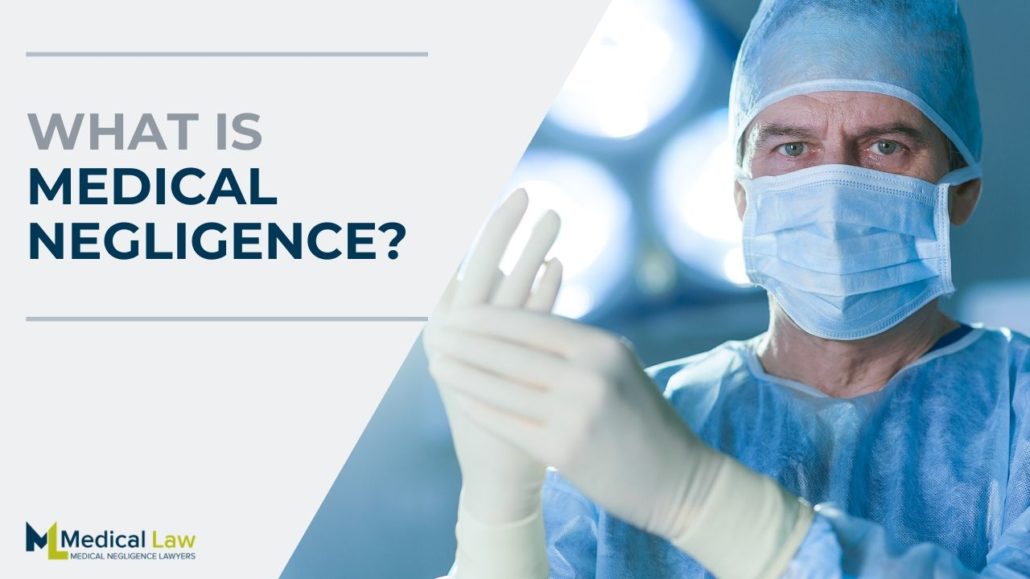50,000 Australians* suffer permanent injuries annually as a result of medical negligence.
*Wilson RMcL, Runciman WB, Gibberd RW, et al. The Quality in Australian Health Care Study. Med J Aust 1995; 163: 458-471
And that’s just what’s reported.
This staggering number has earned Australia recognition for all of the wrong reasons, holding one of the highest rates of medical negligence (error) in the world.
In fact, 1 in every 9 patients who go to hospital end up suffering a complication - and that’s just the tip of the ice berg.
There are also:
You could be feeling that you are the only one that has suffered at the hands of the medical system. But as you might notice, medical negligence isn't exactly uncommon.
The majority of Australians will think they know what negligence is, particularly after experiencing what they think to believe is medical negligence.
The fact of the matter is though, most don’t.
What most Australians don’t realise is that negligence considers more than just a ‘bad’ or ‘less-than-ideal’ outcome.
What is medical negligence?
Speak to a lawyer for free to find out.

Negligence is the failure to take the proper, expected level of care over something to avoid putting someone else in the line of danger.
By way of example, let's look at a common form of medical negligence - the 'botched' surgery.
A patient is unlikely to have experienced medical negligence if:
A patient is likely to have experienced medical negligence if:
To Prove Medical Negligence You Need To Prove these 3 Things...
- 1A duty of care was breached,
- 2The breach caused an adverse outcome, and
- 3The outcome resulted in damages to the patient.
Let's look at each of them in turn.
What is medical negligence?
Speak to a lawyer for free to find out.
There was a duty of care owed, and it was breached.

Duty of care is the legal obligation to ensure the safety and well-being of others.
In layman’s terms, duty of care is an obligation to avoid placing a person in the path of danger.
And, in a case of 'failed surgery', the doctor has neglected his obligation by failing to warn of potential side effects.
And that duty of care is not specific to just doctors.
Which medical professionals owe you a duty of care?
The majority of healthcare providers, registered or unregistered, owe their patients a duty of care.
That means you could claim against:
Including medical centres and hospitals as a whole.
What is medical negligence?
Speak to a lawyer for free to find out.
The breach of duty of care has caused the adverse outcome.

We call this causation.
This is because the patient wouldn’t have continued with the surgery had they had known about the risks.
This means ‘but-for’ the doctor’s neglect to warn, the patient would not have experienced the adverse side effects.
Usually once you have shown someone has breached their duty of care toward you, you need to show that the breach "caused" your injuries.
For example you may be able to show that a doctor was negligent for failing to warn you of the side effects of a drug. However the doctor may argue that the side effects were caused by you taking excessive amounts of recreational drugs.
Most arguments about causation are not 'all-or-nothing' affairs.
They are usually about how much each person's carelessness contributed to the injury.
We'll dive a little deeper into how to assess causation later.
What is medical negligence?
Speak to a lawyer for free to find out.
The outcome has resulted in damages to the patient.

Damages is the legal term for the physical, emotional, and financial impact the negligence has caused the patient.
If for example, a patient is the victim of botched surgery, they could experience financial losses and a reduction in the quality of their life.
This means they satisfy the third criteria.
Like causation, we will dive into damages a little later - that is where the money lies.
For an incident to be considered more than ‘a bad outcome’, and be considered ‘medical negligence’, it needs to satisfy all of the above criteria.
In our next article we will take a deeper dive into these three criteria, and give some specific examples so that you can compare the example with your own situation.
This will give you a practical way to evaluate your potential to bring a claim against a medical treatment provider.
To subscribe to this next article please sign up below. We will SMS you the link when the article is published.
I would like access to the next article!
Sign up to be SMS'd when it becomes available.
Get Social
Share
We'd love if you joined our Facebook Community. We post things that we are passionate about or that interest medical negligence victims or issues in the systems that are supposed to support their recovery, as well as more unrestricted content like this.
Get in touch.
PHONE
07 3231 0604
[email protected]
ADDRESS
345 Queen St, Brisbane City, QLD, 4000



